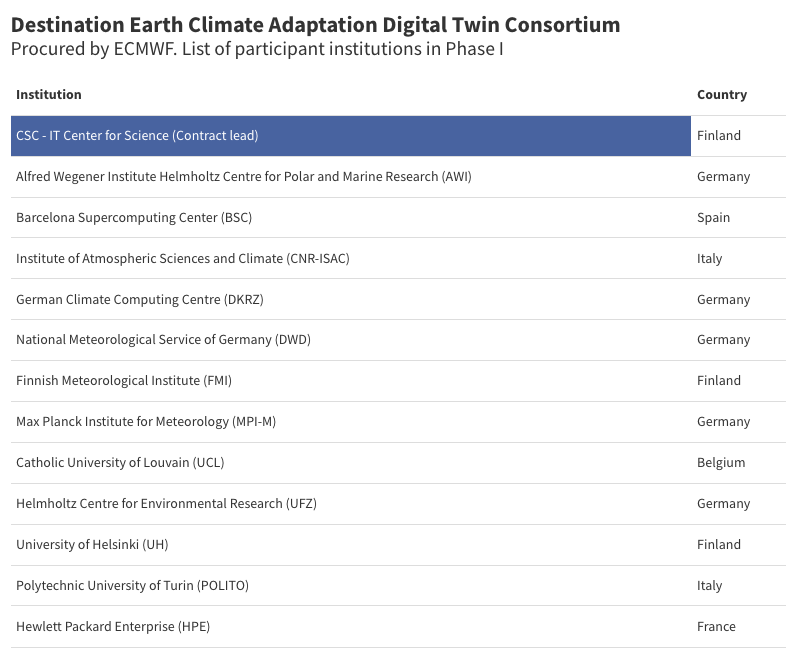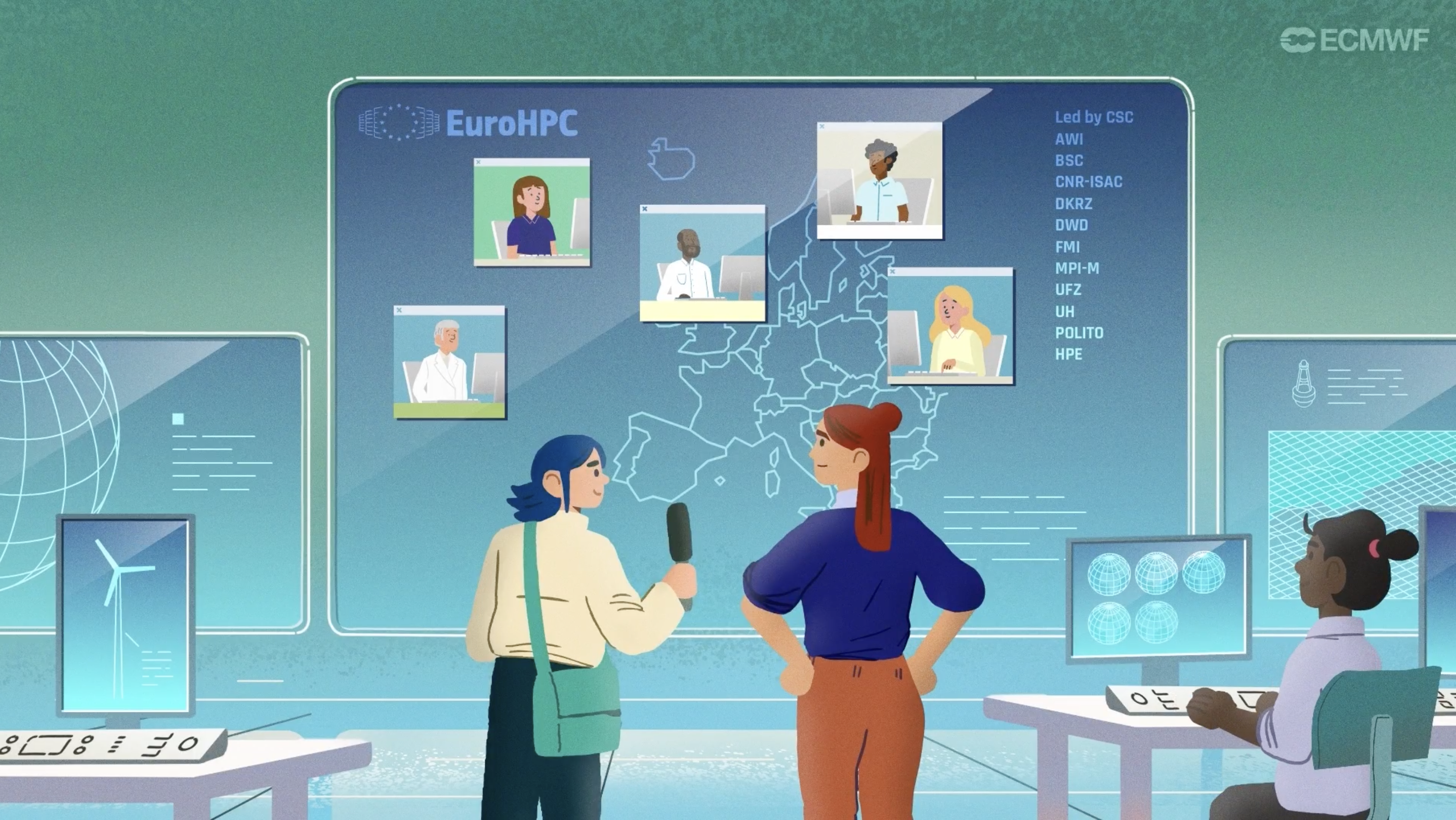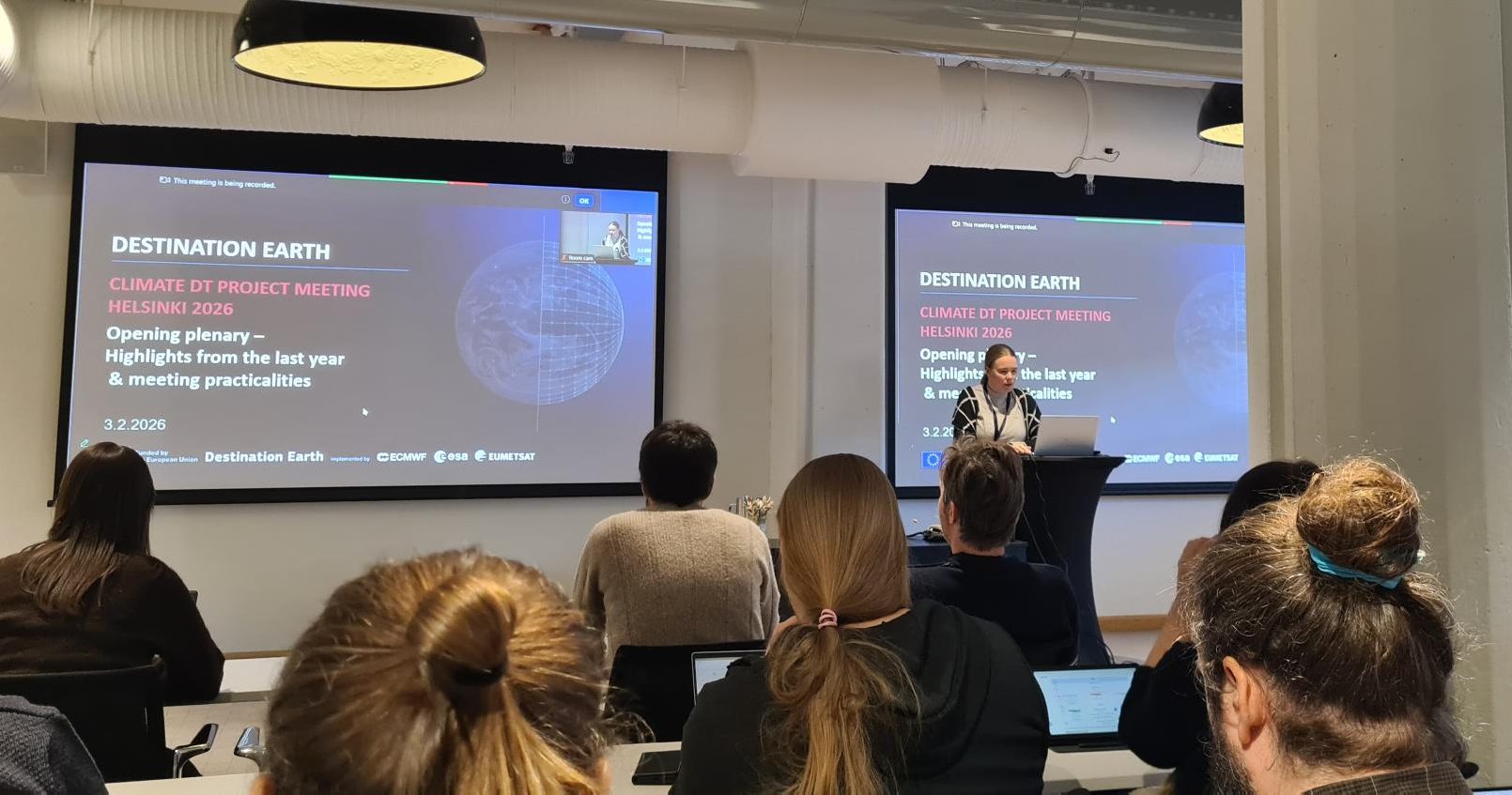
Tenders open to build a Machine Learning-based Climate emulator for Destination Earth
In the framework of Destination Earth, ECMWF is seeking talents to develop an artificial intelligence/ machine learning (AI/ML)-based emulator for the Climate Change Adaptation Digital Twin (Climate DT). The invitation to tender is open to teams capable of producing an innovative machine learning-based emulator for the DestinE Climate DT that is trained on the Climate DT output and can reproduce aspects of its novel simulations in multi-decadal output. This exciting call for proposals is open until 26 June 2024.
The Climate DT of Destination Earth (DestinE), the flagship initiative of the European Commission to build a digital replica of the Earth system, is the first attempt to operationalize climate projections on multi-decadal timescales and at km-scale resolutions. It will produce huge amounts of data, and each climate simulation of the digital twin is computationally expensive, therefore limiting the number of simulations which can be run.
Taking advantage of the fast development of AI/ML technologies and techniques ECMWF aims to create an emulator able to reproduce key aspects of the Climate DT runs in the framework of DestinE at a fraction of the computational costs compared to the physical models.
See the full invitation to tender on ECMWF website
AI/ML are essential to the digital twins and the digital twin engine developed by ECMWF for DestinE since the very beginning. DestinE will speed-up the integration of these very fast-developing techniques in its second phase.
The emulator will be thus developed in the frame of the strategic objectives outlined for Phase II of DestinE, set by the European Commission’s DG CNECT, which foresees an increase in the use of game-changing breakthroughs in AI/ML. Under this framework, ECMWF has already issued a procurement for the Development and Implementation of Ethical Machine Learning Strategies, now under evaluation, and more tenders will follow. Ultimately, the objective is to develop workflows towards a ML foundation model for the Earth system.
This ML-based solution that is to be developed will be complementary to the physics-based Climate DT simulations and will support efforts towards the quantification of uncertainties in the simulations and enhance the interactivity of the system.
A simulation of surface temperature from one of the prototype projections of the Climate DT performed on EuroHPC LIUMI with IFS-NEMO (at 4.4 km resolution for atmosphere and land and 1/12 degrees for ocean and sea ice)
The emulator will be trained on the large volumes of data produced by the Climate DT and be able to reproduce important aspects of the runs, such as a particular time-slice or some specified variables, with a considerable reduction in the computing cost. It should also provide stable integrations of at least 30 years with physically consistent fields and thereby accurately reproduce climatologically relevant properties of the Climate DT. The final emulator should operate at a spatial resolution of 25 km.
The contract offer includes an optional development to create an emulator to interpolate different forcing scenarios, which has additional funding.
The team selected will work in close coordination with ECMWF and with the Climate DT consortium, led by Finland’s CSC – IT Center for Science and gathering 13 specialised centres from across Europe.

See the full invitation to tender on ECMWF website
Destination Earth is a European Union-funded initiative launched in 2022, with the aim to build a digital replica of the Earth system by 2030. The initiative is being jointly implemented under the leadership of DG CNECT by three entrusted entities: the European Centre for Medium-Range Weather Forecasts (ECMWF), responsible for the creation of the first two ‘digital twins’ and the ‘Digital Twin Engine’, the European Space Agency (ESA) responsible for building the ‘Core Service Platform’, and the European Organisation for the Exploitation of Meteorological Satellites (EUMETSAT), responsible for the creation of the ‘Data Lake’.
We acknowledge the EuroHPC Joint Undertaking for awarding this project strategic access to the EuroHPC supercomputers LUMI, hosted by CSC (Finland), and the LUMI consortium, Marenostrum5, hosted by BSC (Spain) Leonardo, hosted by Cineca (Italy) and MeluXina, hosted by LuxProvide (Luxembourg) through a EuroHPC Special Access call.
More information about Destination Earth is on the Destination Earth website and the EU Commission website.
For more information about ECMWF’s role visit ecmwf.int/DestinE
For any questions related to the role of ECMWF in Destination Earth, please use the following email links:


